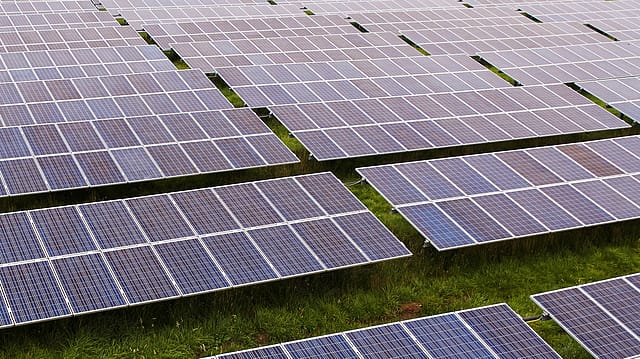L&T carves out renewable biz vertical
ADVERTISEMENT

Larsen & Toubro on Monday carved out a separate business vertical for renewable engineering, procurement, and construction (EPC) out of its power transmission & distribution business, within its infrastructure projects segment.
“The growth of renewable EPC business has accelerated in recent years. Thanks to our early start and investments, we have built an organisation that is uniquely placed in the value chain of creating sustainable energy infrastructure. This space is promising. Multiple opportunities are visible… Creation of this vertical will give increased autonomy, customer proximity and leadership oversight to the business and enable us to excel in this space,” says S.N. Subrahmanyan, chairman and managing director, Larsen & Toubro.
To enhance management visibility, L&T has created the renewable EPC business, an addition to its construction verticals. A. Ravindran, senior vice president, Larsen & Toubro, has been appointed as the head of Renewable Business.
L&T is already a leading player globally with a vast portfolio of 22 GWh of renewable EPC experience. In addition to ground mounted solar, floating solar and wind balance of plant projects further, L&T’s Battery Energy Storage System implementation aggregates to 3GWh.
In Saudi Arabia, L&T is a key player involved in major projects including the 700 MW Ar Rass Solar PV IPP, the 2,000 MW Ar Rass-2 Solar PV IPP, and the 1.6 GW Sudair solar plant. Recently it announced orders for another two plants with an aggregate capacity of 3.5GW. It is building the power and grid systems for one of the world’s largest green hydrogen plants at NEOM. Additionally, L&T is advancing renewable infrastructure with a 250 MWp solar PV plant in the Amaala Project and has completed a large-scale solar installation in Jeddah. L&T is executing Phase 6 of the Mohammed bin Rashid Al Maktoum Solar Park in Dubai, UAE.
The Middle East region is ideal for solar generation due to high solar irradiance, abundant land availability, alignment of solar generation with peak cooling demand and freeing up of fossil fuel for exports, the company says.
Clean energy transition has accelerated in recent years with decarbonised electricity being central to the fight against climate change, the company says. The rapid technology development in renewable generation has facilitated this trend. Renewable penetration, particularly in solar and wind generation, is set to grow in the global mix. New drivers of electricity demand growth are emerging with stringent reliability and power quality requirements. “The spatial and temporal variability of renewable energy sources necessitate a hybrid approach of combining different sources and addition of energy storage devices, so that the supply is dispatchable on demand, any time of the day, throughout the year,” it says.
There is a strong momentum in India’s pursuit of promoting renewable energy especially towards increasing the share of non-fossil fuels-based electricity. India sees green jobs and renewable growth as important aspects of achieving the visionary Viksit Bharat and equitable climate justice for the world. Renewable Energy Implementing Agencies have chalked out clear capacity addition trajectories and several schemes including Green Energy Corridors are being implemented.